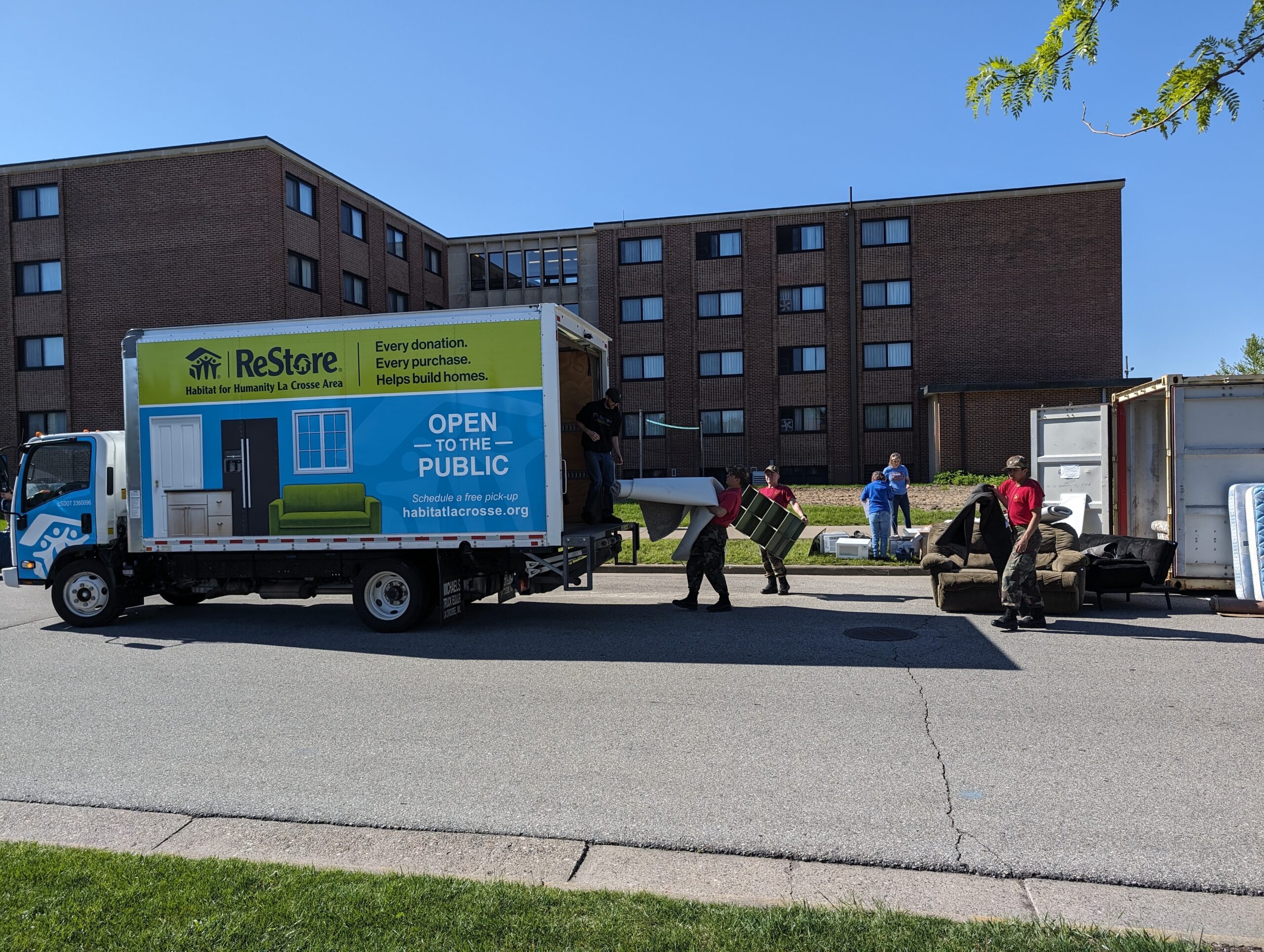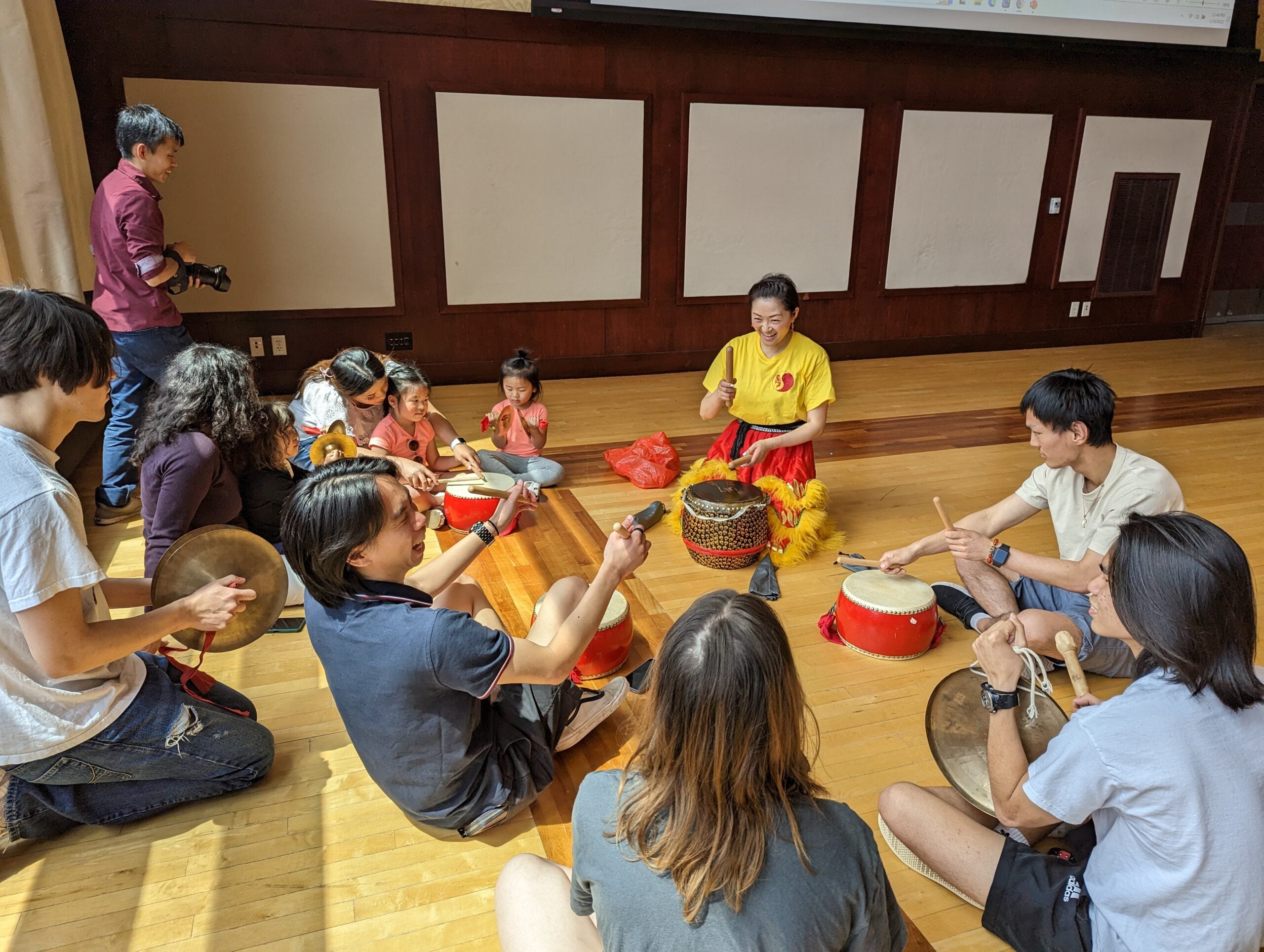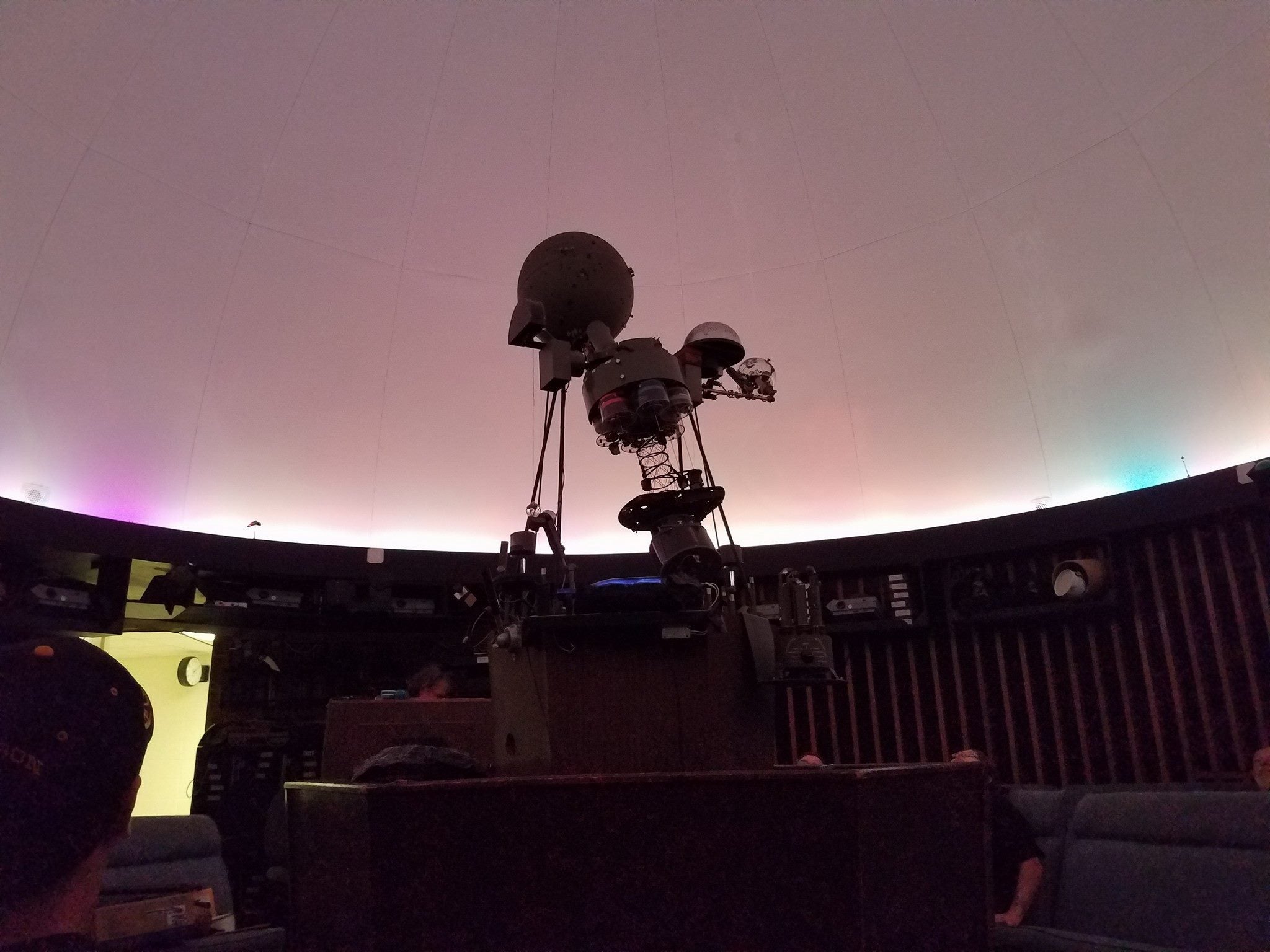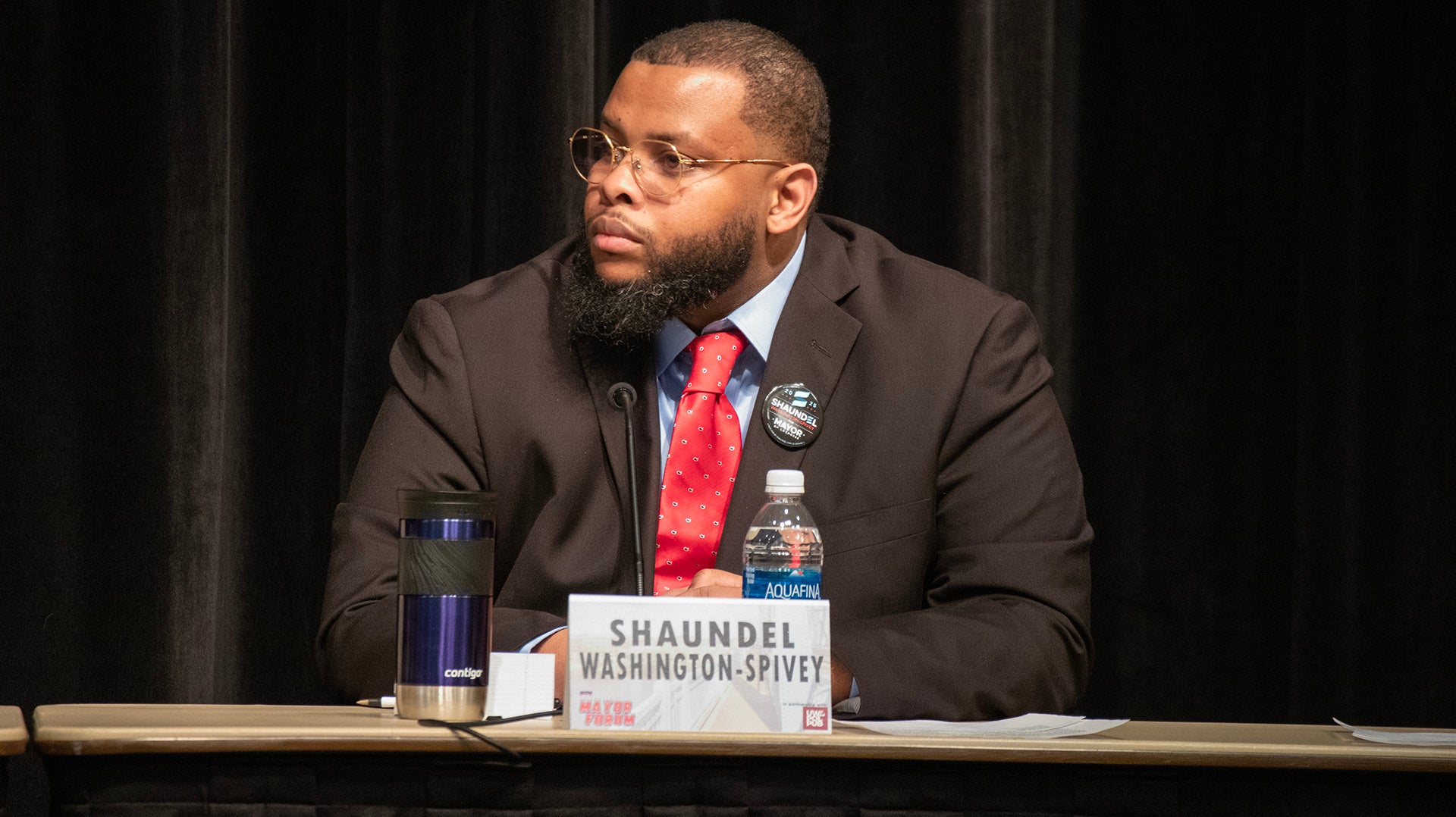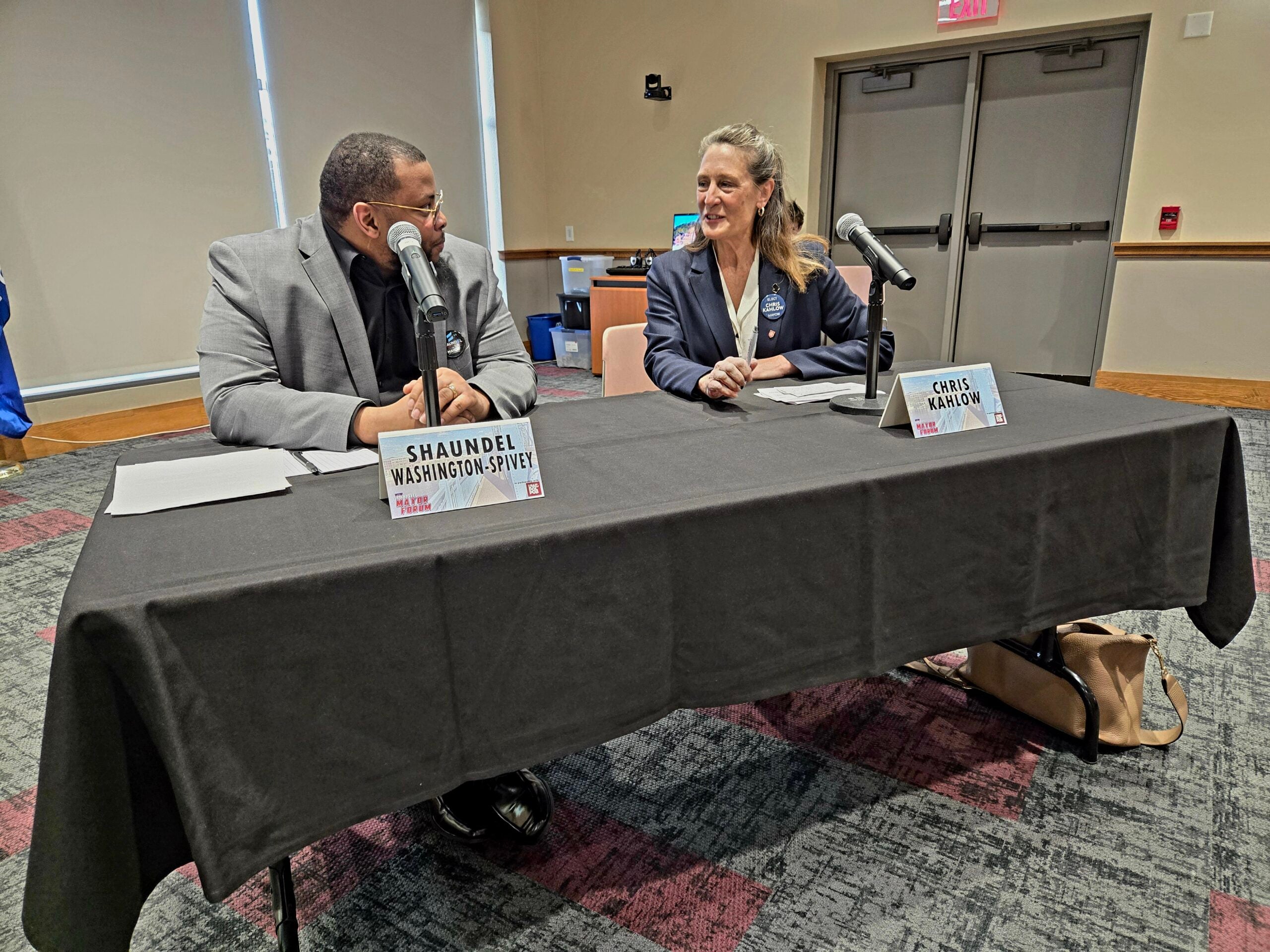When futons, microwaves and rugs line curbs near colleges and universities, Wisconsinites know it’s campus move-out season.
This year, the University of Wisconsin-La Crosse and Habitat for Humanity of the Greater La Crosse Region created a dumpster diversion program, which prevented furniture and other reusable household items from going to landfills. About 18,000 pounds — that’s 9 short tons — were diverted from the landfill.
“You can think back to when we were moving out. We just didn’t have any space in our cars. The only option was to put it in the dumpster,” said Kaitlyn Wiehe, who works for the AmeriCorps VISTA program with La Crosse’s Habitat for Humanity.
News with a little more humanity
WPR’s “Wisconsin Today” newsletter keeps you connected to the state you love without feeling overwhelmed. No paywall. No agenda. No corporate filter.
Wiehe told WPR’s “Wisconsin Today” that Habitat for Humanity’s ReStore in La Crosse and other nonprofits, such as the Exchange, Couleecap and Family Promise, are distributing items this summer to low-income families.
The following has been edited for clarity and brevity.
Kate Archer Kent: How does this diversion program align with La Crosse’s climate goals?
Kaitlyn Wiehe: This is keeping so much waste out of our landfill. Once the landfill fills up, we have to go find another piece of land to use and fill it up again.
That land is then contaminated from all of the different items that are going in there. A lot of them are pollutants. We talk about microplastic in the soils, stormwater runoff. They’re all going into our rivers, lakes and streams.
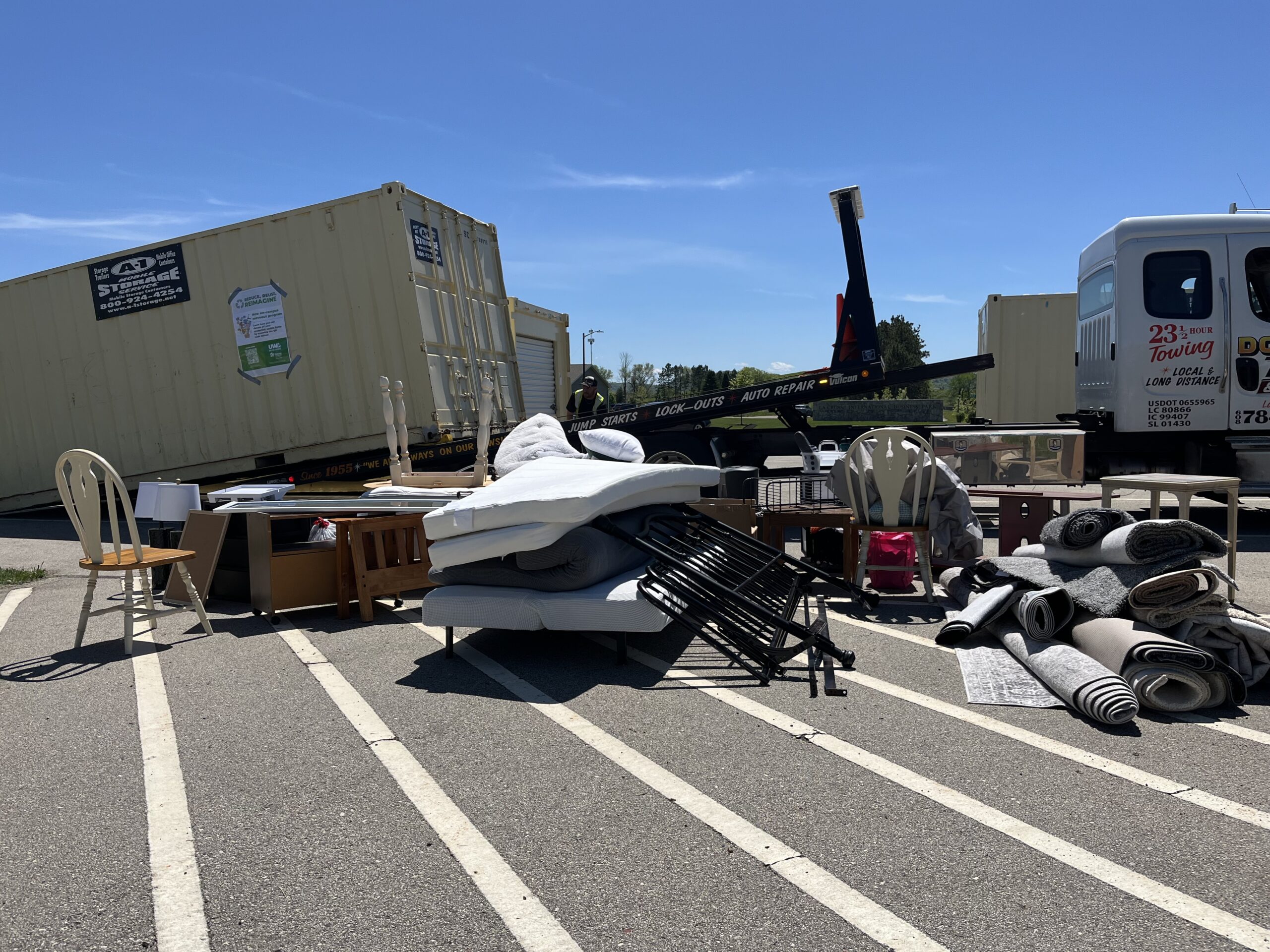
KAK: Where did the idea to start a dumpster diversion program at UW-La Crosse come from?
KW: Habitat for Humanity of the Greater La Crosse Region has wanted to do a dumpster diversion program with one of the college campuses here in La Crosse for quite a few years now. One of the UW-La Crosse professors, Emily Whitney, in the public health department came into the ReStore one day. She was shopping, and she forgot the leaf to her table. She got to talking with our ReStore director, Nancy, about doing a dumpster diversion program.
Nancy passed their card upstairs to Amy Smith, our sustainability director. Around that time, they were interviewing for the VISTA position and had brought up the fact that they had wanted to do a dumpster diversion program in my interview. It just so happens that I had prior experience having created and run the program at Marist College in New York for two years. It all just really magically came together. It was quite an awesome start to everything.
KAK: How are you using that experience to establish the UW-La Crosse program?
KW: It’s definitely informed a lot of the decisions we’ve made here, one of them being the time crunch in terms of getting students out, but also the volunteers.
During this time everyone is just trying to leave and so having enough hands around to help and keep the program running has been a big thing. Luckily this year, it has been an amazing turnout.
KAK: Do volunteers fish through dumpsters for items that can be repaired?
KW: Most definitely. That is one of the daily jobs, if not the primary job. It’s less about monitoring the pod site, more so about monitoring the dumpsters and making sure we’re stopping students. If we see them at the dumpster, we’re like, “Hey, look (at) us over here. We’ll take it.”
Even if the item has wobbly legs or one of the legs is broken, and it just needs an extra screw in it, we can fix it. We have the ability at the ReStore to be able to repair those items.
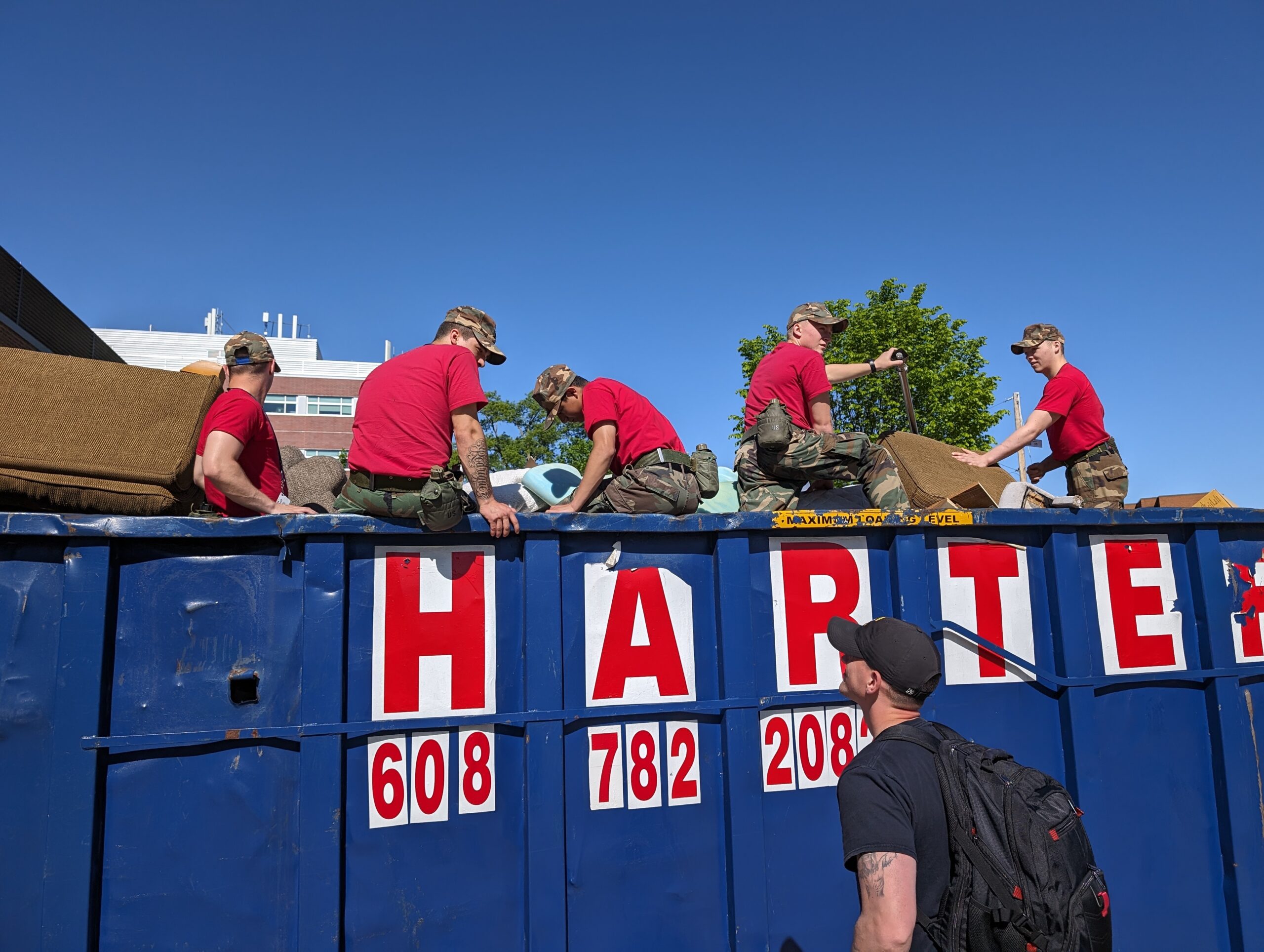
KAK: Walk us through what happens to items that are put into these storage pods.
KW: Once the item is put into a storage pod, nobody can take things out. Once the pod is full, it gets taken back to the ReStore. All of the items are cataloged.
Some items are resold by ReStore. That profit goes towards building new homes and implementing more sustainable practices in the new homes that we build. Other organizations, other nonprofits that we’ve partnered with come to the ReStore and take what they need.
This program creates a really unique opportunity. We primarily serve low-income families. But we don’t really touch on the underserved populations like the homeless population. The organizations that we’re partnering with work directly with that population.
KAK: How could other communities in Wisconsin adopt a similar dumpster diversion program?
KW: You need a lot of community connections, a lot of volunteers and a little bit of time to get everything organized. You basically designate certain zones as donation stations and have people bring their items there over a period of time.
Then, the organizations can either come to that site or they can be transported somewhere. Just give them back into the community. You can do it through nonprofits. You can do it through an open event — a big old neighborhood swap. There are tons of different ways to be able to run a program like this. It really just depends on your community’s needs and your creativity.

